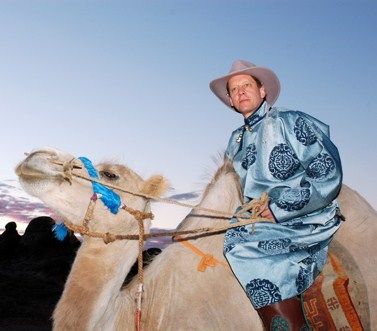
Last night Steve Jobs announced his retirement from Apple stating that he felt he could no longer fulfill his duties as the head of what has possibly become the world’s most famous company. An announcement that was perhaps expected given his ongoing health issues and frenetic work schedule.
In response to the announcement, Steve Wozniak, Co-Found of Apple and longtime friend of Apple’s CEO said, “Steve Jobs is the greatest business leader of our time. He’ll be remembered for 100 years. To think that I knew somebody who became the most important person in the world. It’s actually — it’s kind of stunning.”
Robert Friedland, seemingly always living in the shadow of his old friend Steve Jobs, began to strike it rich in the mining business in the 1980s. He then expanded his wealth riding the economic wave created by an international boom in commodity prices over the past decade. Despite the commodities craze, Friedland had to work hard to keep pace with Steve Jobs as Apple emerged as one of the world’s most valuable and admired companies. Friedland also had to work hard to shed the nickname “Toxic Bob” coined by environmentalists from his “alleged role” in the contamination of a Colorado river in the 1980s. But in early 2011, during a media presentation in Cape Town, South Africa, having notched numerous wins in the resource business, Friedland brazenly compared himself to his old friend Steve Jobs.
When Robert Friedland first set foot in the Mongolia desert in 2001, the mining magnate saw the opportunity to turn a desolate windswept land in central Asia that held the Oyu Tolgoi deposit into one of the largest porphyry copper-gold mines in the world through his company Ivanhoe Mines (TSX:IVN). Mongolia’s response? Protesters have burned Friedland’s image in effigy in the capital city of Ulaanbaatar and in 2006 the Mongolian Parliament welcomed his efforts with a windfall tax on copper and gold exports. But after years of negotiations and changes in the law a special agreement was finally signed on October 6, 2009 to pave the way for the development of the project.
According to Mongolian law, the state may acquire up to a 50% share of a mineral deposit of strategic importance if the state has contributed to the exploration of the deposit at some point in the past. For all other mineral deposits of strategic importance, the state’s maximum share is set at 34%. Fortuitously, the Parliament of Mongolia is given the ultimate power to determine what qualifies as a mineral deposit of strategic importance. In general terms, “strategic importance” concerns a mineral deposit with a size that may have a potential impact on national security, the economic and social development of the country at the national and regional levels or that is producing or has a potential of producing more than 5% of total Mongolian GDP in a given year. Oyu Tolgoi certainly qualifies as having strategic importance to Mongolia, it is the largest development project in the history of the country. The total capital requirement for the project is estimated at over $4.5 billion.
On the same day when Steve Jobs told the world “iQuit”, Rio Tinto announced that they had further increased their stake in Ivanhoe Mines by 2 percent, and their respective stake in the Oyu Tolgoi, by exercising its right to acquire shares. Rio Tinto now owns 48.5% of Ivanhoe’s common shares and has the right to boost its stake in Ivanhoe to 49% under an existing deal. The company stated they would consider buying additional shares of Ivanhoe, depending on general economic conditions, Ivanhoe’s business prospects and other factors. Ivanhoe will issue 27.9 million new shares to a wholly-owned subsidiary of Rio Tinto. The British-Australian mining giant paid $18.98 for a total consideration of $529.5 million. At press time shares of Ivanhoe Mines are currently trading at $19.72; shares of Apple are being exchanged for $371.65.



 Follow us on Twitter
Follow us on Twitter Become our facebook fan
Become our facebook fan










Comments are closed.